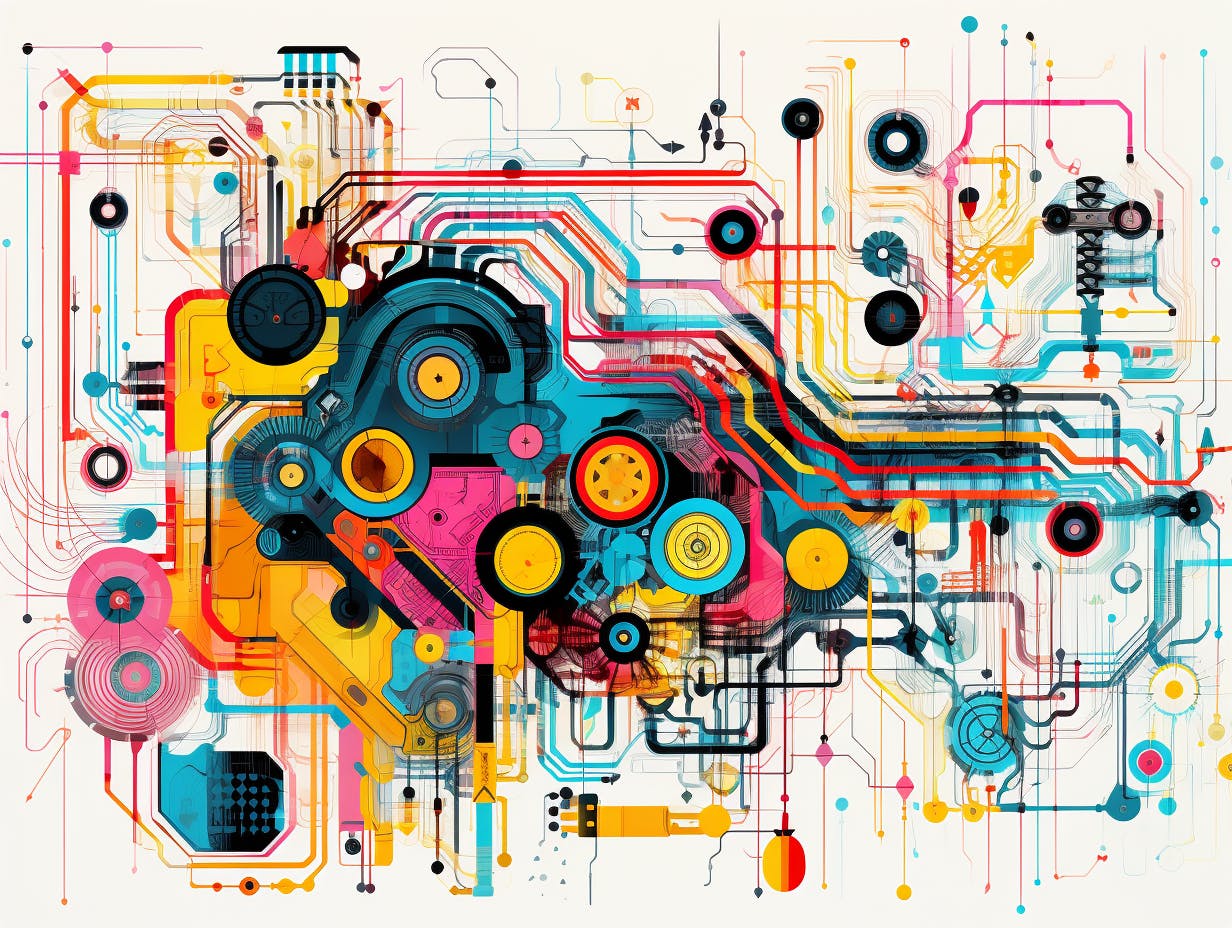In the dynamic world of marketing, where creativity meets technology, AI for creating advertisements is emerging as a transformative force. By leveraging sophisticated algorithms and data analytics, businesses can now craft highly targeted and engaging ad campaigns, bridging the gap between audiences and brands with unprecedented precision.
AI’s Role in Advertising
Artificial Intelligence (AI) is fundamentally altering how advertisements are created, tailored, and delivered. It has the capability to analyze vast amounts of data very quickly, which enables marketers to gain insights into consumer behavior and trends. With AI for creating advertisements, businesses can now tap into personalized content creation, predictive analysis, and real-time optimization, ensuring that advertisements resonate more effectively with target audiences.
- Personalization at Scale: AI allows for the creation of ads that are not only relevant to individual preferences but also designed to appeal to diverse audiences. Using machine learning algorithms, AI can segment audiences based on past behavior, demographics, and even psychographics, leading to highly personalized ad experiences.
- Predictive Analytics: Through AI, marketers can forecast trends and customer responses more accurately. Predictive models help in understanding future buying behaviors, enabling brands to adjust their strategies proactively. This ensures that ads align with consumer needs and increase conversion rates.
- Real-time Optimization: One of the most compelling aspects of AI for creating advertisements is its ability to optimize ad campaigns on-the-fly. AI systems can detect patterns and make adjustments in real-time to improve performance metrics such as click-through rates and engagement levels.
AI Technologies in Advertising
AI technologies such as Natural Language Processing (NLP), computer vision, and neural networks are at the forefront of crafting advertisements. NLP enables systems to understand and generate human language, making ad copy more relatable and engaging. Computer vision assists in creating visually appealing graphics by analyzing images and videos to tailor visual content automatically. Neural networks help in identifying and learning patterns in customer interaction data, refining ad strategies continuously.

AI made with Dean Jones
Reasons to Adopt AI in Advertising
The adoption of AI for creating advertisements is not just a trend but a strategic imperative for businesses aiming for efficiency and better ROI. AI enhances creativity by automating mundane tasks and providing insights that might be overlooked by human observation alone. Additionally, AI streamlines the testing and deployment of ads across various platforms, ensuring consistency and coherence in brand messaging.
For instance, companies like Netflix and Amazon have set the benchmark in AI-driven recommendations and targeted advertising, demonstrating the colossal impact and benefits that AI can bring to customers and businesses alike.
Evidence Supporting AI in Advertising
The success stories of leveraging AI’s potential are numerous and growing. According to a study by MIT Sloan Management Review, companies that extensively used AI to enhance their marketing practices saw a 37% increase in revenue and a 28% reduction in costs. Moreover, Gartner reports that 30% of all B2B companies will employ AI to augment at least one of their primary sales processes by 2024.
FAQs Addressed
How does AI improve the customer experience in advertising?
AI customizes ads based on user data, making them more relevant and engaging, which enhances user experience and satisfaction.
Is AI replacing human creativity in advertising?
AI is a tool that complements human creativity by providing data-driven insights and automating repetitive tasks, allowing marketers to focus more on strategic and creative aspects.
Are there privacy concerns with AI in advertising?
Yes, privacy is a significant concern, but many AI tools are designed with robust data protection measures, and compliance with regulations like GDPR is a priority for most businesses.
How is AI revolutionizing the creation of advertisements in marketing?
AI is revolutionizing the advertising landscape by automating and enhancing various aspects of the creative process. Here are some key ways AI is making a significant impact:
- Personalization: AI can analyze consumer data to tailor ads to specific individuals, improving relevance and engagement. For instance, AI algorithms can suggest products based on a user’s browsing history or purchasing behavior, making the ad experience more personalized.
- A/B Testing: Traditional A/B testing methods can be time-consuming and resource-intensive. AI automates this process, analyzing vast amounts of data to determine which creative elements are most effective with different audience segments.
- Creative Generation: AI tools can generate ad copy, design layouts, and even entire ad concepts autonomously, reducing the creative workload on ad teams. This allows teams to focus more on strategy and less on execution.
- Performance Prediction: AI can predict the performance of an advertisement before it goes live by analyzing historical data and current trends, helping marketers make data-driven decisions to maximize ROI.
- Real-Time Optimization: AI-powered tools can optimize ad placements and budgets in real-time, ensuring that ads are served to the right audience at the right time.

AI made with Dean Jones
What makes AI-produced advertisements more effective?
AI-produced advertisements tend to be more effective due to several reasons:
- Data-Driven Insights: AI leverages large datasets to identify patterns and trends that can inform the creation of more relevant and impactful ads.
- Enhanced Creativity: With AI tools, advertisers can explore a wider range of creative possibilities. For example, AI can suggest innovative combinations of visuals and copy that may not have been initially considered by human creatives.
- Cost Efficiency: By automating repetitive tasks and streamlining workflows, AI reduces the time and resources required to create and test advertisements, allowing brands to allocate their budgets more efficiently.
- Scalability: AI makes it feasible to produce and manage a large volume of ads across multiple channels without a proportional increase in workforce.
Improved Targeting: By analyzing user data, AI can improve audience targeting, ensuring that ads are shown to users who are most likely to engage with them.
What are some examples of AI in the advertising industry?
AI is being utilized in various ways across the advertising industry. Some notable examples include:
- Dynamic Creative Optimization (DCO): Platforms like Google Ads use AI to dynamically assemble ad elements in real time to deliver the best-performing ads to users.
- Chatbots: Brands are using AI-driven chatbots for conversational advertising, allowing for interactive and engaging ad experiences.
- Content Creation Tools: Solutions like Persado or Copy.ai use natural language processing to generate persuasive and compelling ad copy.
- Predictive Analytics: Tools such as IBM Watson Advertising leverage AI to predict consumer behavior and optimize ad strategies accordingly.
- Image Recognition: AI tools can analyze user-generated images on social media to identify brand mentions, allowing advertisers to leverage these insights for better-targeted campaigns.
How can I implement AI technologies for creating more engaging advertisements?
Implementing AI technologies for advertisement creation can seem daunting, but it can be streamlined into manageable steps:
- Assess Your Needs: Determine which aspect of your advertising strategy you want to enhance using AI—be it audience targeting, creative development, or performance analysis.
- Select the Right Tools: Choose AI tools that align with your goals. Research various AI-driven platforms available for ad creation, such as Adext for automated ad management, or Lumen5 for video content creation.
- Integration: Integrate AI technologies with your existing marketing stack. This might involve connecting AI tools with your CRM or marketing automation platforms.
- Experiment and Optimize: Test different AI-generated creatives and use performance data to continually refine and optimize your ads. AI tools often come with analytics capabilities to help you measure success.
- Scale Gradually: Start with small-scale campaigns to understand the impact of AI on your advertising efforts. Gradually scale up as you gain confidence in the tools and processes.
- Training and Education: Ensure your team is well-equipped to work with AI technologies. Regular training sessions and staying updated with the latest AI developments in advertising can be beneficial.
By embracing AI in advertising, brands can unlock new levels of creativity and efficiency, delivering more personalized and impactful ads to their audiences.
The era of AI for creating advertisements is upon us, bringing with it a remarkable shift in how brands communicate with their audience. By offering personalization, predictive accuracy, and real-time adaptation, AI is not only revolutionizing the efficiency of marketing efforts but also shaping the future of consumer-brand interaction. For businesses looking to maintain a competitive edge and maximize their advertising impact, integrating AI in their marketing strategy is not just advantageous but essential.

